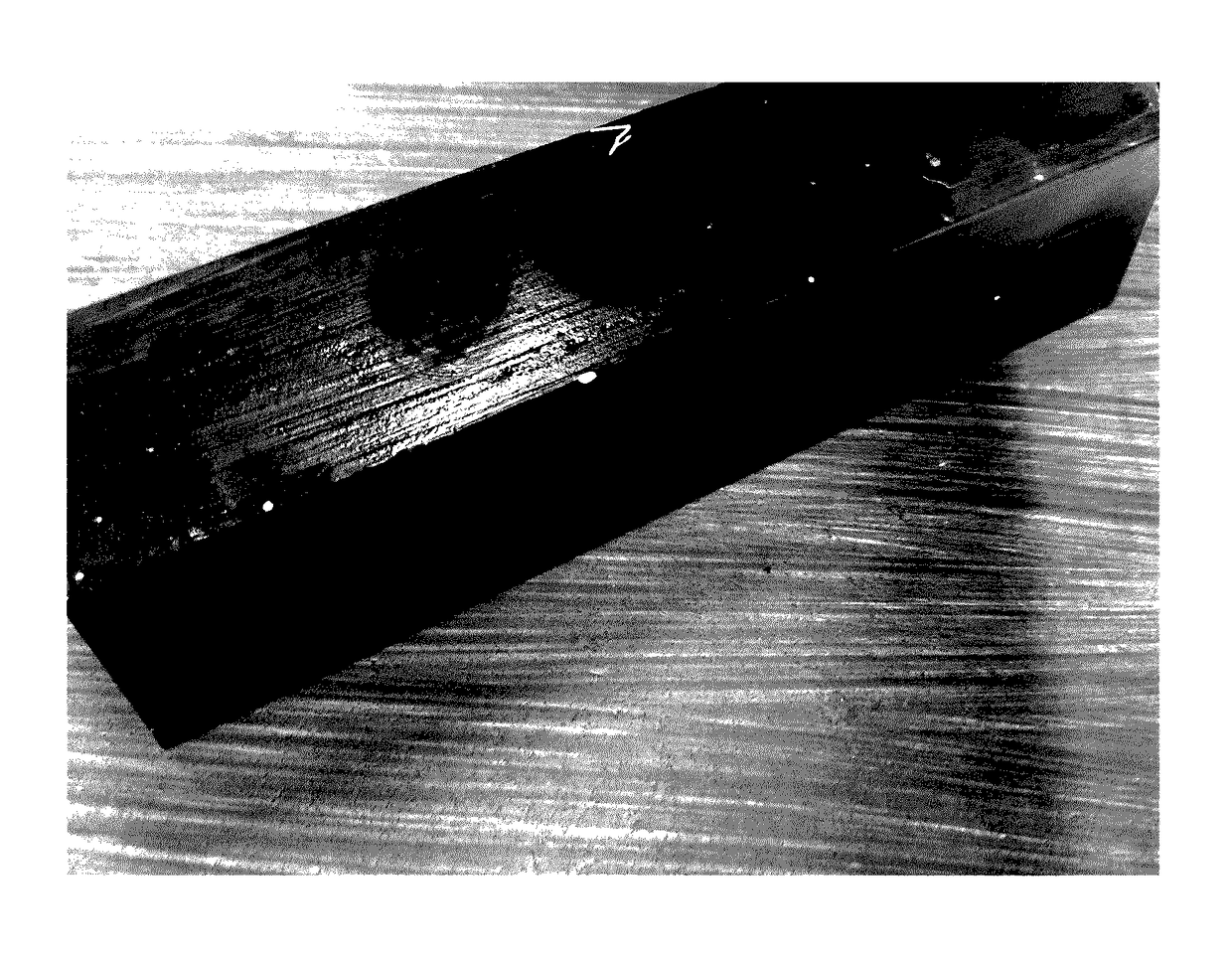White or colored cementitious mixture for manufacture of concrete, mortar and pastes with thermochromatic properties
a cementitious mixture and thermochromatic technology, applied in the field of new building materials, can solve the problems of not allowing a wide range not allowing a wide combination of colors and colorimetric variation, and presenting rather weak results of thermochromatic effect durability, etc., to achieve the effect of acceptable durability
- Summary
- Abstract
- Description
- Claims
- Application Information
AI Technical Summary
Benefits of technology
Problems solved by technology
Method used
Image
Examples
preparation examples
[0047]In the following, some examples of preparation and application according to the invention are presented. These examples are intended to better illustrate the invention without any limitation on the content thereof.
example 1
Self-Compacting Micro-Concrete with High Architectural Performance and with Thermochromatism in the Range Below 10° C. and Above 30° C.
[0048]
Component of the Cementitious MixtureWeight %1White Portland cement50.02Finely ground limestone filler15.03Condensate of sulfonated melamine0.84Modified polyvinyl resin0.45Metakaolin26.66Dispersant of vinyl acetate and ethylene copolymers1.27Thermochromatic copolymer with thermochromatism2.5sensitivity to 10° C., blue color8Thermochromatic copolymer with thermochromatism2.5sensitivity to 30° C., red color
Manufacturing Steps:
[0049]Place the components 1, 2, 3 and 4 in the mixer, and subsequently add component 5. Mix separately components 6, 7 and 8 and add to the previous mixture. Mix for at least 120 s. The cementitious mixture is ready to use. Add this mixture in 3 parts of silica sand and 1 part of cementitious mixture to fabricate the micro-concrete, adding water until the mixture is fluid and homogeneous, very easy to apply. Pour in directl...
example 2
Colored Cementitious Painting Thermosensitive in the Range of 30° C. and Below 10° C.
[0050]
Component of the Cementitious MixtureWeight %1White Portland cement62.42Finely ground limestone filler5.03Condensate of sulfonated melamine0.64Modified polyvinyl resin0.45Artificial white pozzolan17.06Dispersant of vinyl acetate and ethylene copolymers2.97Thermochromatic copolymer with thermochromatism4.0sensitivity to 30° C., red color8Thermochromatic copolymer with thermochromatism4.0sensitivity to 10° C., blue color9Binding regulator3.010Zinc stearate0.7
Manufacturing Steps:
[0051]Place components 1, 2, 3, 4 and 10 in the mixer, and subsequently add components 5, 6, 7, 8, 9 and mix for at least 120 s. Add an aqueous acrylic emulsion with a concentration of 30% to this cementitious mixture, in the proportion of 2 parts of emulsion to 1 part of cementitious mixture and dissolve well, preferably using a spiral mixer. Apply the limewash on the surface with the help of a paint roller in at least t...
PUM
| Property | Measurement | Unit |
|---|---|---|
| particle size | aaaaa | aaaaa |
| temperature | aaaaa | aaaaa |
| temperatures | aaaaa | aaaaa |
Abstract
Description
Claims
Application Information
 Login to View More
Login to View More - R&D
- Intellectual Property
- Life Sciences
- Materials
- Tech Scout
- Unparalleled Data Quality
- Higher Quality Content
- 60% Fewer Hallucinations
Browse by: Latest US Patents, China's latest patents, Technical Efficacy Thesaurus, Application Domain, Technology Topic, Popular Technical Reports.
© 2025 PatSnap. All rights reserved.Legal|Privacy policy|Modern Slavery Act Transparency Statement|Sitemap|About US| Contact US: help@patsnap.com

